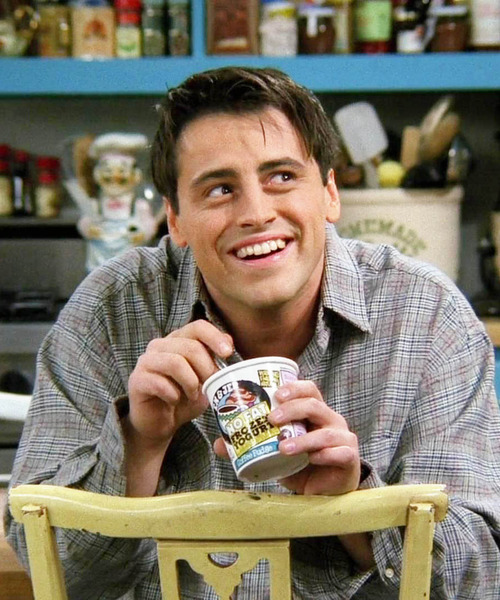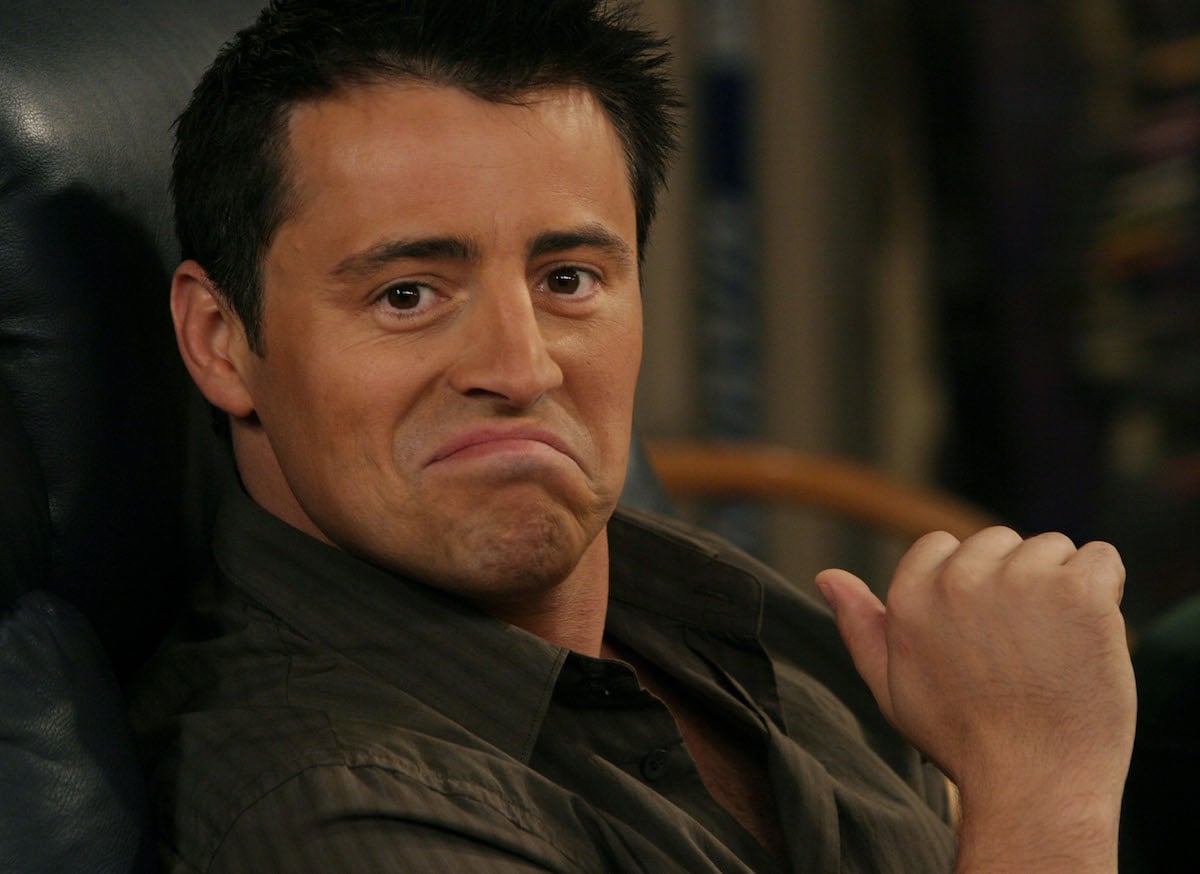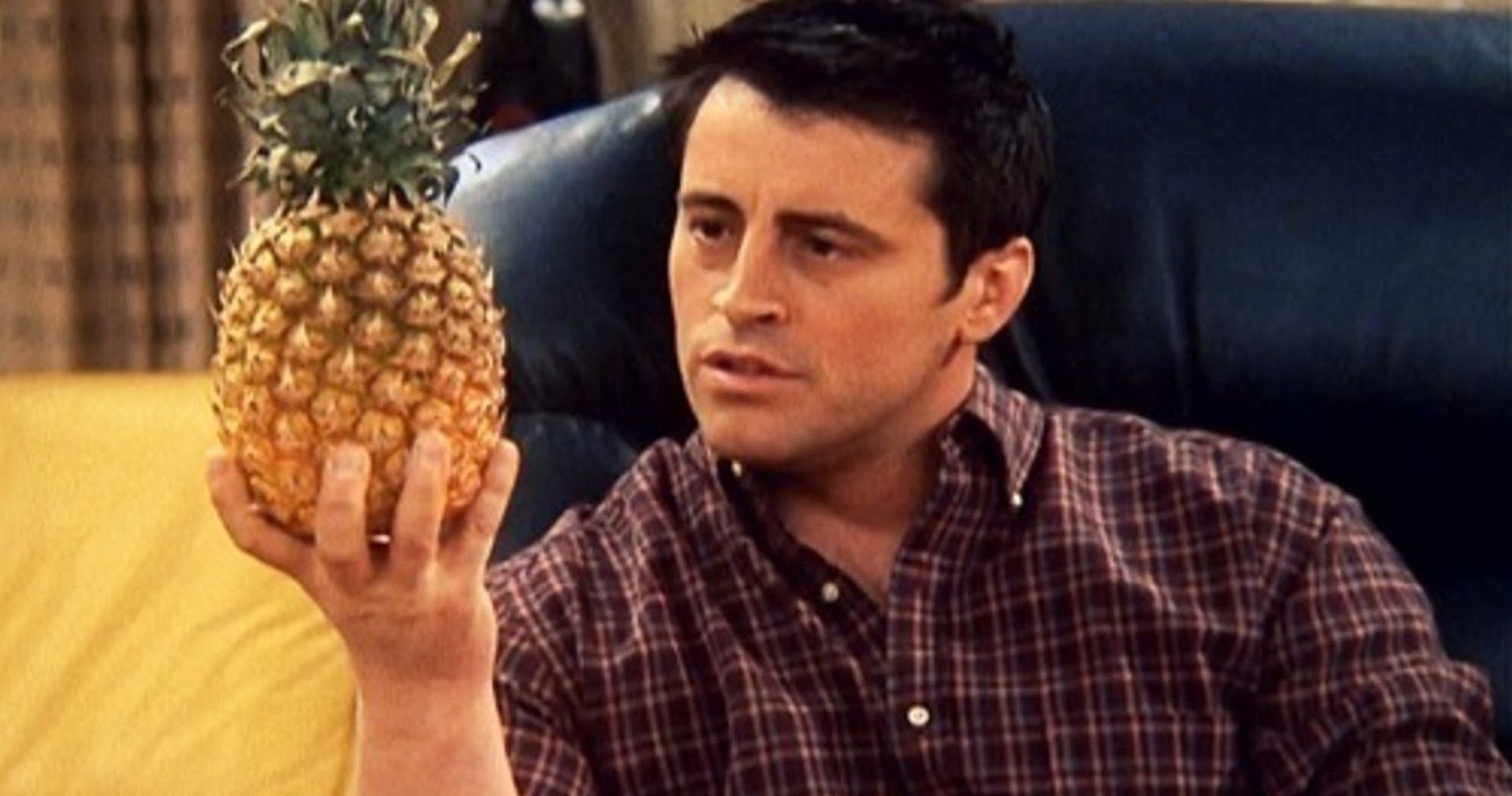Joey Miuccio - Exploring A TV Legacy And Beyond
For anyone who has followed the ups and downs of a beloved television character, the journey of Joey Tribbiani from "Friends" into his own show was, in a way, a moment many had anticipated. It was, you know, a chance to see what life held for the kind-hearted actor with a big appetite and a knack for making people smile. This spin-off, simply titled "Joey," aimed to give fans more of the character they had come to cherish, bringing along a fresh group of faces to share in the adventure, including Matt LeBlanc, Andrea Anders, Paulo Costanzo, and Jennifer Coolidge, creating a new comedic ensemble for audiences to get to know.
Yet, the conversation around television spin-offs often touches upon a concern: the possibility of, perhaps, diminishing the original show's lasting impact. Producers sometimes voice worries about how new stories might affect the cherished memories people hold of a show that truly left its mark. The "Joey" series, in some respects, has often been mentioned as a story that offers a good lesson in how these creative decisions can play out, serving as a reminder of the delicate balance involved in extending a popular fictional world.
Beyond the individual character's television outing, the "Joey" name, it turns out, connects to more than just a single person's story on screen. There are, for instance, actual "Joey" restaurants that promise a certain kind of dining adventure, featuring dishes from around the world and a welcoming atmosphere. And then, quite separately, there is the intriguing mystery series "Poker Face," which, while not directly tied to the "Joey" show, shares a connection through its compelling characters and engaging narratives, offering another distinct viewing experience for those looking for something captivating to watch.
Table of Contents
- What's the Story Behind Joey Miuccio's Television Ventures?
- Unpacking the Friends Spinoff - A Look at Joey Miuccio's Journey
- Why Did Joey Miuccio's Show Face Challenges?
- Is There More to Joey Miuccio Than Just TV?
- How Does Joey Miuccio's World Connect to Mystery Solving?
- Charlie Cale - A Unique Character in Joey Miuccio's Orbit
- What Makes Poker Face a Compelling Watch for Joey Miuccio's Fans?
- Where Can You Find Joey Miuccio's Adventures Now?
What's the Story Behind Joey Miuccio's Television Ventures?
The story of "Joey," as a television show, really begins with a character who had already captured a lot of hearts. Joey Tribbiani, the aspiring actor from "Friends," was, you know, a character that resonated with many viewers because of his simple charm and unwavering loyalty. When the decision was made to give him his own series, it felt like a natural progression for a personality that had so much more to give. The show was set to follow him as he moved to Los Angeles, hoping to make it big in Hollywood, bringing with him his unique blend of innocence and street smarts. It was a chance for audiences to see him, perhaps, grow a little bit more, or at least try to figure out life in a new place.
The series premiered on NBC, a network well-known for its successful comedies, and it had a lot of expectations riding on it, naturally. The cast assembled around Matt LeBlanc included Andrea Anders, who played his sister Gina, Paulo Costanzo as his nephew Michael, and Jennifer Coolidge as his quirky agent, Bobbie. This new group of actors was tasked with building a fresh dynamic, distinct from the beloved "Friends" ensemble, while still keeping that familiar, warm comedic spirit. It was, in some respects, a big ask, asking viewers to connect with new relationships while still holding onto the memory of the old ones. The hope was, of course, that the audience would embrace these new characters just as readily as they had the ones from the past.
Unpacking the Friends Spinoff - A Look at Joey Miuccio's Journey
When you look at the "Friends" spin-off, "Joey," it really was about giving a beloved character a new stage to perform on, you know? Joey Tribbiani, a fan favorite, was finally getting what some might call his "big break" in his own show. The idea was to continue his story, to see him pursue his acting dreams in a fresh setting, away from the familiar coffee house and apartments of New York. This particular venture, you could say, offered a different kind of narrative, focusing more intently on one character's individual path rather than the intertwined lives of a larger group. It was, in a way, a bold move for a network, to take such a central figure and give him his own spotlight.
- Kelli Ogmundson
- Spiderman Sophie Rains Video Adventure Unveiled
- Gabriel Lopez
- The Millstream Inn
- Benjamin Lock
The official "Friends" YouTube channel even posted the first two full episodes of the sitcom, giving fans a direct way to revisit the initial moments of Joey's solo career. This digital availability means that even today, people can easily check out how this new chapter began for the character. The show's return on March 7, 2006, in a different time slot, indicated that the network was, perhaps, trying to find the best spot for it to connect with viewers, adjusting its schedule to give it the best chance to find its audience. It was a bit of a strategic shuffle, you might say, trying to make sure the show had every opportunity to succeed.
Why Did Joey Miuccio's Show Face Challenges?
Television producers, you know, often have conversations about whether creating spin-offs, or bringing back old shows with reunions and revivals, might, in a way, lessen the special feeling people have for the original work. There is, apparently, a concern about possibly "sullying the legacy" of something truly special. The NBC sitcom "Joey," in this context, has often been brought up as an example that serves as a rather compelling story of caution. It's almost as if it became a case study in how difficult it can be to recapture magic, especially when extending a narrative that already had such a clear, well-loved ending.
The show, an American sitcom, starred Matt LeBlanc, who was, of course, reprising his well-known character, Joey Tribbiani, from the hugely popular series "Friends." While the character himself was still very much loved, the new environment and supporting cast, it seems, didn't quite click with audiences in the same way. The challenge was, arguably, immense: to create something that felt both familiar and fresh, without relying too heavily on nostalgia, yet still honoring the character's origins. It was, in a way, a very tough act to follow, trying to live up to the immense success and cultural impact of its predecessor.
Is There More to Joey Miuccio Than Just TV?
Beyond the world of television shows, the name "Joey" also pops up in a completely different, yet equally inviting, context: the "Joey restaurants." These establishments, you know, invite people to discover dishes that take inspiration from kitchens all around the globe. It's a promise of, perhaps, a culinary journey, where you can experience flavors and cooking styles from various cultures without leaving your local area. The focus is really on creating a dining experience that feels both familiar and exciting, offering a taste of something a little bit different, yet still approachable.
What these "Joey" restaurants also really emphasize is providing what they call "unparalleled hospitality." This means, in essence, making sure every guest feels truly welcome and well-cared for, from the moment they step inside until they leave. It’s about creating an atmosphere where people can relax, enjoy their food, and feel, you know, genuinely looked after. Furthermore, the "Joey Restaurants" group is quite dedicated to making sure its website and its physical restaurant locations are accessible to everyone, ensuring that as many people as possible can enjoy what they offer, which is, in some respects, a really important commitment in today's world.
How Does Joey Miuccio's World Connect to Mystery Solving?
While the "Joey" television series focuses on comedic acting adventures, there's another fascinating show mentioned that, in a way, shares a connection through its compelling characters and engaging narratives. This is the series "Poker Face," a creation from Rian Johnson, featuring a truly unique central figure. The show brings together a cast that includes Natasha Lyonne, Benjamin Bratt, Simon Helberg, and Rhea Perlman, building a world where a special skill becomes the key to solving puzzling events. It's a completely different kind of story, yet it captures attention with its clever setup and memorable performances, much like any good piece of storytelling aims to do.
The main character in "Poker Face" is Charlie Cale, and she possesses, you know, an extraordinary ability: she can tell when someone is lying. This isn't just a slight hunch; it's a profound knack for identifying falsehoods, a kind of human lie detector. This unusual talent sets the stage for all sorts of interesting situations and, naturally, puts her in the path of various mysteries. Her background as a casino cocktail waitress adds a certain down-to-earth quality to her character, making her feel, perhaps, more relatable despite her truly remarkable gift. It's a pretty cool concept, when you think about it.
Charlie Cale - A Unique Character in Joey Miuccio's Orbit
Charlie Cale, the central figure in "Poker Face," is, in some respects, a character who truly stands out. She has this rather uncanny knack for identifying when people are being untruthful, which is, you know, a pretty powerful skill to have. When a close friend of hers meets an unexpected end, Charlie, with her unique ability, feels a strong pull to figure out what really happened. She becomes determined to unravel these mysterious events, even if it means putting herself in situations that could, perhaps, be quite risky. Her journey through each episode is driven by this desire for truth, leading her into different places and encountering all sorts of people.
Reviewers, it seems, have had a lot of good things to say about "Poker Face," describing it as a clever, episodic mystery series. They often point to Natasha Lyonne's portrayal of Charlie as a key reason
Article Recommendations



Detail Author:
- Name : Dessie Lueilwitz
- Username : kdamore
- Email : mkreiger@kuhn.com
- Birthdate : 1980-06-19
- Address : 7421 Feil Lock Parisianside, NE 68335-1222
- Phone : (678) 337-7433
- Company : Ritchie Inc
- Job : Aircraft Launch and Recovery Officer
- Bio : Dolores error modi exercitationem est aut maiores. Aspernatur aperiam ad recusandae temporibus qui reiciendis. Porro velit et nesciunt ex tempora.
Socials
instagram:
- url : https://instagram.com/karl_mueller
- username : karl_mueller
- bio : Porro est ea neque accusamus odit. Et aut et earum id. Error et adipisci odio sed nihil.
- followers : 1240
- following : 589
linkedin:
- url : https://linkedin.com/in/karlmueller
- username : karlmueller
- bio : Quis deserunt rerum placeat facere omnis.
- followers : 4327
- following : 2186
twitter:
- url : https://twitter.com/karl_dev
- username : karl_dev
- bio : Nisi et deserunt temporibus hic hic veritatis repudiandae quidem. Qui facere nobis aut. Sit est necessitatibus sunt sed in.
- followers : 4291
- following : 737
facebook:
- url : https://facebook.com/karl_mueller
- username : karl_mueller
- bio : At porro sint eveniet quo consequatur aut ut et.
- followers : 351
- following : 1968